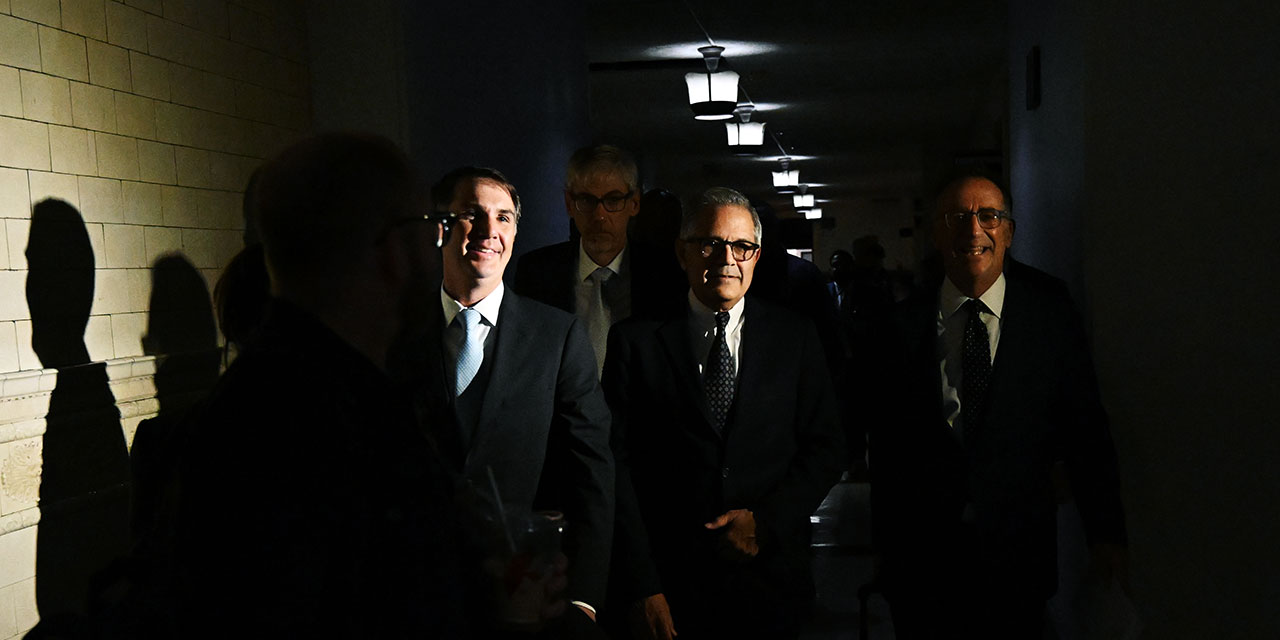
In June 2022, Loudoun County, Virginia’s elected prosecutor, Buta Biberaj, received an email from an attorney named Amy Weber offering to help “reform-minded prosecutors” with messaging and policy—for free.
Weber was working for The Wren Collective LLC, a private consulting firm that, she noted, was “already embedded in several [prosecutors’] offices across the country and looking to expand.” Biberaj took Wren up on the offer.
She was not alone. Our new report, based on more than 20 public records requests and 50,000 pages of texts and emails, reveals that Wren has indeed embedded itself in progressive prosecutors’ offices across the country. The group has shaped prosecutors’ messaging, policies, and courtroom decisions, and, in its own words, “almost always work[s] behind the scenes.” Our investigation paints a picture of outside actors corrupting the justice system from within.
A limited liability company founded by former public defender activist Jessica Brand, Wren has served as communications, policy, and legal advisor to more than 40 prosecutors nationwide. It offers prosecutors a suite of services, including staffing, office-organization, communications, and policy resources.
As a communications advisor, Wren provides op-eds, press releases, and talking points to district attorneys. It has shaped policies on everything from bail reform, plea bargaining, and the prosecution of police. Perhaps most troublingly, it has interfered in specific criminal cases.
How can Wren afford to offer its services free of charge? It can’t, of course. Wren has boosters—at least one of whom is also financing progressive prosecutors’ campaigns and linked the group to a district attorney’s office.
David Menschel is the head of Vital Projects Fund, which gave $330,000 to Wren’s nonprofit sponsor, Social and Environmental Entrepreneurs, between 2021 and 2023.
In an email exchange, Menschel connected one of Wren’s representatives with Portland’s now-former district attorney, Mike Schmidt, to whose campaign he had donated.
Pledging to work “without any billing or publicity,” Wren offered Schmidt a library of policy proposals, including on bail reform, which it had written for Virginia prosecutors. But before they could get started, Wren’s Amy Weber insisted that Schmidt give Wren a “final scope of work” to provide to its connection, Menschel.
The D.A. accepted Wren’s offer and instructed his staff that the group would be “help[ing] me craft some policies.” One such policy was the district attorney’s decision not to prosecute the city’s left-wing rioters after the 2020 unrest.
The group made connections with other prominent prosecutors. In Los Angeles, for example, Wren inked a $180,000 taxpayer-funded contract with D.A. George Gascón’s office. Soon after, Weber pressed a senior aide to share confidential sentencing data, explaining that it was needed to satisfy Wren’s “funders.”
One of those funders is Cari Tuna, president of Open Philanthropy, who has bankrolled prosecutors’ campaigns and Wren’s work with district attorneys. In 2021, Tuna’s charity gave Wren a $250,000 grant for that work. Tuna also donated nearly $2 million to Black Lives Matter activist Shaun King’s Real Justice PAC. That group, combined with its affiliate, the Grassroots Law Project, has paid Wren nearly $1.2 million since 2020.
Real Justice PAC, one of the largest outside backers of progressive prosecutors’ campaigns, has occasionally broken the law. The group illegally coordinated with Philadelphia’s Larry Krasner on both his 2017 and 2021 campaigns, sharing staff, office space, and resources. At the time, Wren was working with Krasner’s campaign, Real Justice PAC, and the district attorney’s office.
Wren’s influence extends even to Texas. In Austin, the group worked for Jose Garza’s 2020 campaign for district attorney on behalf of Real Justice PAC, before joining the Travis County District Attorney’s Office as an advisor. Wren signed a nondisclosure agreement in January 2022, and the other signatory was Jessica Brand’s former colleague, top Garza deputy Trudy Strassburger—who also serves as board secretary at the Grassroots Law Project.
When one of Wren’s other clients, San Antonio prosecutor Joe Gonzales, faced resistance from judges over his Wren-authored bail policies, Jessica Brand offered to get Real Justice volunteers to “start calling,” saying that she “could very easily mobilize massive community action to support you.” After an officer-involved shooting, Gonzales’s deputy, who doubled as his campaign treasurer, thanked Brand via text: “We got an indictment on the [police shooting] case. Thanks for the help from you & the team.”
The group has also intervened in specific prosecutions. Wren had access to confidential case files in an Orlando murder case and revised the charging memos that led prosecutor Monique Worrell not to pursue charges. A week later, Worrell blamed police for the lack of charges, telling them to “build better cases.” Six months later, the suspect was arrested for possessing a machine gun in an unrelated case and received a year and a half in federal prison.
Our investigation found that more than 20 prosecutors have used personal email accounts and devices for official business, apparently to obscure their dealings with outside groups. Other offices denied the existence of records that we possessed, or refused to turn over files, citing attorney-client privilege.
These findings likely only scratch the surface. Federal, state, and local authorities should launch investigations into any wrongdoing, since even the appearance of impropriety could further undermine Americans’ already low opinion of our justice system.
Photo: Philadelphia district attorney Larry Krasner (center) (Drew Hallowell/Getty Images)

















